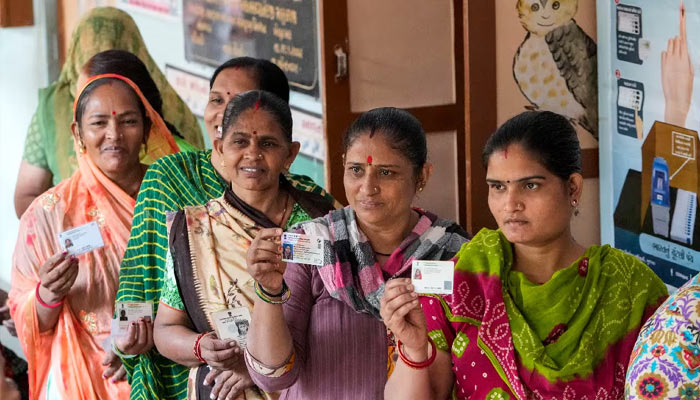A constitutional amendment bill for holding Lok Sabha and assembly elections simultaneously has been listed for introduction in the Lok Sabha on Tuesday.
‘The Constitution (One Hundred and Twenty-Ninth Amendment) Bill, 2024 could be referred to a joint committee of the two Houses, according to PTI.
As per the Lok Sabha agenda, Union Law Minister Arjun Ram Meghwal will introduce the bill for “one nation, one election.” Following this, he could request Speaker Om Birla to refer the Bill to a Joint Committee of Parliament for wider consultations. The bill, which also seeks to align the elections of the union territories of Jammu and Kashmir, Puducherry and the NCT of Delhi, was cleared by the Cabinet last week.
As the provisions indicate, the process of simultaneous elections itself will not take place till 2034.
What does the bill say?
As per a copy of the bill circulated on the night of December 13, if the Lok Sabha or any state assembly is dissolved before the end of its full term, mid-term elections will be held only for that legislature to complete the remainder of its five-year term.
The bill suggests adding Article 82(A) (simultaneous elections to the House of the People and all Legislative Assemblies) and amending Articles 83 (duration of Houses of Parliament), 172, and 327 (power of Parliament to make provisions with respect to elections to Legislatures).
It states that the provisions of the amendment will come into effect on an “appointed date,” which the President will notify on the first sitting of the Lok Sabha after a general election. According to the bill, the “appointed date” will be after the next Lok Sabha elections in 2029, with simultaneous elections slated to begin in 2034.
It specifies that the tenure of the House of the People (Lok Sabha) will be five years from the appointed date, and the tenure of all legislative assemblies elected after the appointed date will end with the tenure of the Lok Sabha.
And if, the House of the People or a Legislative Assembly is dissolved before the end of its full term, the term of the new House or Assembly will be for the unexpired portion of the previous term, it says.
Against democracy, says Opposition
The proposal to align elections was a part of the Bharatiya Janata Party’s 2024 poll manifesto and has the backing of Prime Minister Narendra Modi but is fiercely opposed by a raft of political parties and activists who allege that it will hurt democratic accountability.
Last week, Congress MP Jairam Ramesh had demanded that the ‘One ation, One Election’ bill be sent to a Joint Parliamentary Committee.
“The bill will be presented in Parliament, and we want it to be referred to the Joint Parliamentary Committee, which will hold discussions on it. The Indian National Congress’s position was clarified last year by party president Mallikarjun Kharge, who sent a four-page letter to former President Ram Nath Kovind’s committee on One Nation, One Election, stating that we oppose the bill,” Ramesh had said.
Tamil Nadu chief minister and Dravida Munnetra Kazhagam (DMK) chief had dubbed the proposed bill as “draconian”.
“The Union Cabinet has approved introducing the draconian ‘One Nation, One Election Bill’ in Parliament. This impractical and anti-democratic move will erase regional voices, erode federalism, and disrupt governance. Rise up INDIA! Let us resist this attack on Indian Democracy with all our strength!” he wrote on X.
CPI(M) Rajya Sabha member John Brittas had also said that move is against the federal spirit of the country. West Bengal Chief Minister Mamata Banerjee also slammed the Centre and has announced that her party MPs will oppose this “draconian legislation”. She claims that the bill is not a “carefully-considered reform”, but an “authoritarian imposition”.
Govt needs support of 361 MPs
Since the current strength of the Lok Sabha is 542, the government will need the support of 361 MPs. In addition to the National Democratic Alliance (NDA), the government will need non-aligned parties like the YSR Congress Party (YSRCP), the Biju Janata Dal (BJD) and the All India Anna Dravida Munnetra Kazhagam (AIADMK), to back the bill.
In the Rajya Sabha, which has 231 members currently, the government will need support of 154 MPs. The NDA’s current strength in the Rajya House is 114, and six nominated members and the Opposition INDIA has 86, and others have 25.

